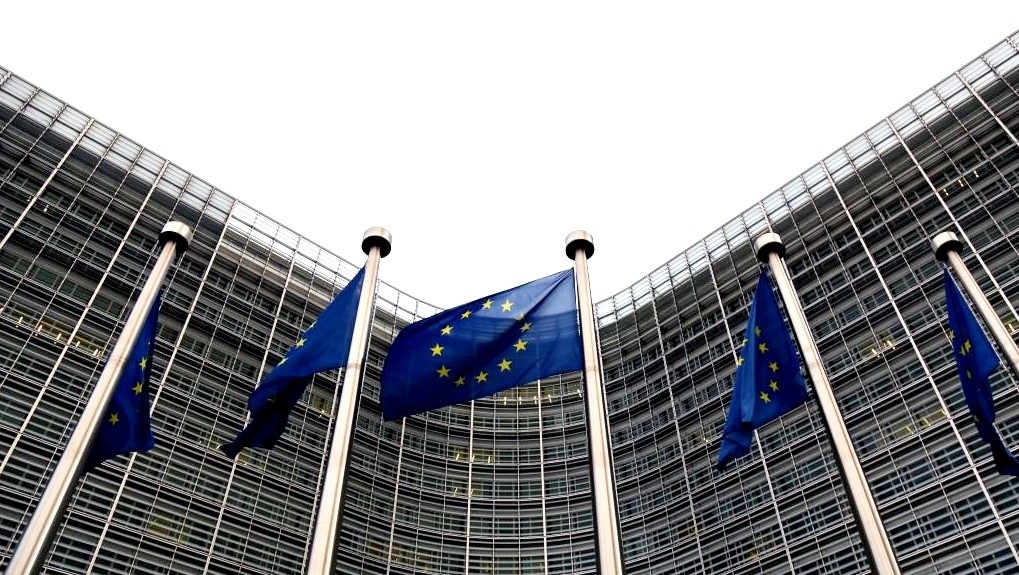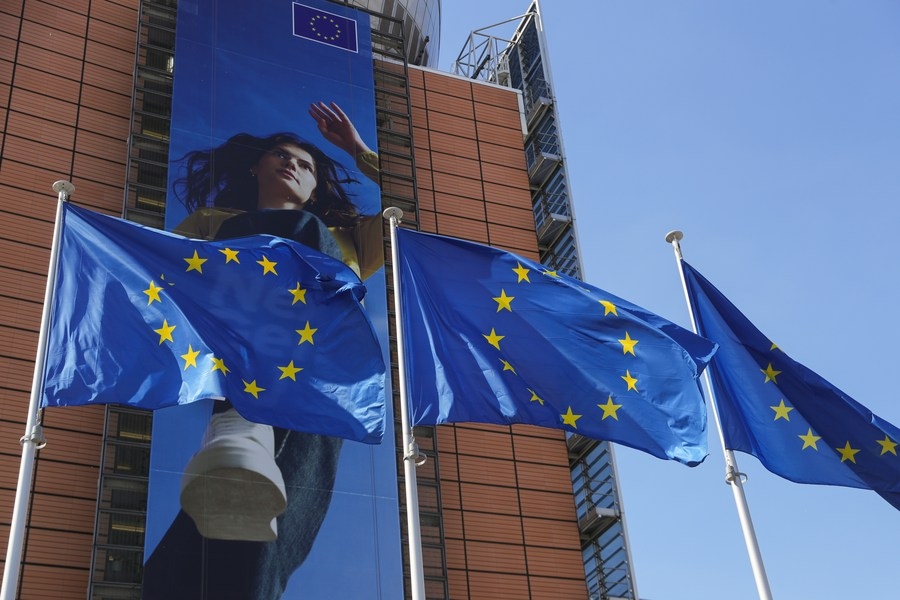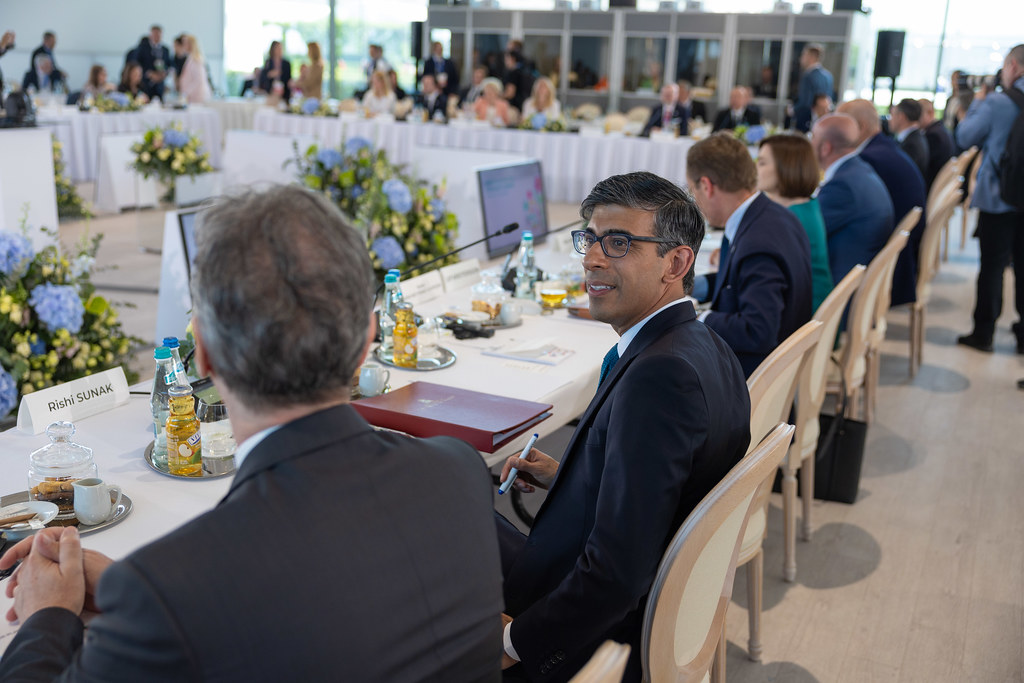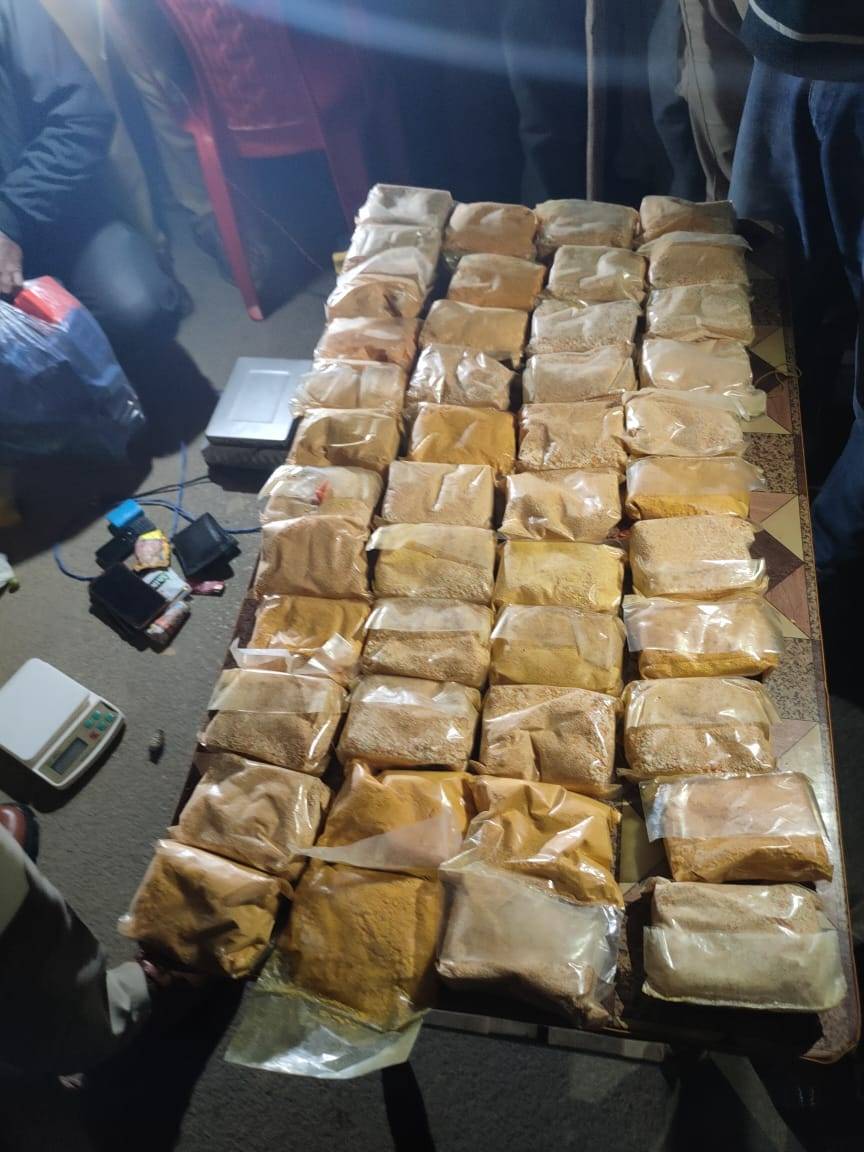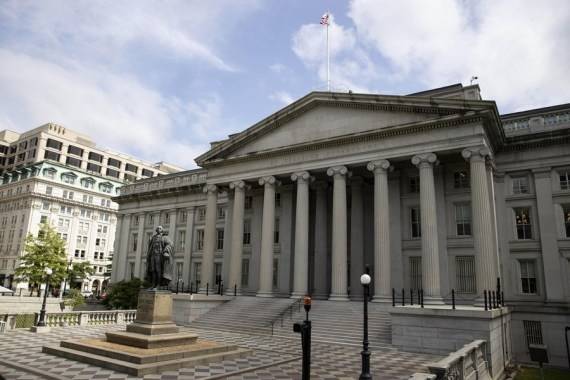Bulgaria has stopped 11,000 illegal entries across its border with Turkey since January, a 40 percent increase compared with the same period in 2022…reports Asian Lite News
Britain is seeking a new partnership with Bulgaria in a bid to halt illegal immigration as over a million Syrian and Afghan refugees are expected to head to western Europe from Turkiye.
The Times reported on Thursday that British Prime Minister Rishi Sunak is set to announce a security partnership with Bulgaria to boost intelligence sharing between the National Crime Agency and Bulgarian police.
The aim is to combat organized crime groups that smuggle migrants and equipment used to manufacture dinghies, mainly in Turkey.
Sunak’s main goal is tackling the small boats crisis by urging fellow European leaders to treat illegal migration as a top priority.
After this year’s earthquake in February and the resumption of deportations to Afghanistan, over a million refugees of both countries who are currently based in Turkiye are expected to head to western Europe and Britain.
Illegal immigrants travel in dinghies being manufactured in Turkey, which the UK Border Force says has become a hub for people smugglers ferrying migrants across the English Channel.
While no official cooperation deal is expected soon, the NCA has been commissioned to build “closer links” with Turkish authorities to target smuggling gangs.
Bulgaria has become a major entry point to the EU for gangs bringing in boats’ equipment from Turkiye and for migrants following a crackdown on Aegean Sea crossings into Greece.
The arrangement helps Bulgaria to “destroy the business model” of the criminals, according to Downing Street.
Bulgaria has stopped 11,000 illegal entries across its border with Turkey since January, a 40 percent increase compared with the same period in 2022.
Sunak said illegal migration posed an “unprecedented” threat to Europe’s borders.
“Europe is facing unprecedented threats at our borders, from (Russian President) Putin’s utter contempt of other countries’ sovereignty to the rise in organized immigration crime. We cannot address these problems without Europe’s governments and institutions working closely together,” he was quoted as saying.
The Home Office said: “Migration is driven by a number of factors, and we will continue to work with international partners to overcome them. We have a close partnership with Turkiye when it comes to the shared problem of illegal migration.”
Meanwhile, the NCA said: “Tackling people smuggling is a top priority, and we work closely with international partners to disrupt the supply of vessels.”
Last month, the UK and Albania agreed on a package of measures to tackle illegal migration, which include migrant return agreements and the setting up of a joint operational task force to manage illegal migration of Albanian citizens to the UK.
Migrant crossings into the EU surged by 64% last year, as organised criminal gangs tapped into cross-border European networks, according to the UK government statement.
Stemming the rising flow of illicit arrivals into the EU and the Schengen passport-free travel area has been a pressing issue and the growth of illegal migration one of the main concerns voiced last year when Bulgaria and Romania were yet again denied entry into the Schengen zone.
In March, the EU launched pilot projects on migration management with Romania and Bulgaria, with a focus in Bulgaria on the external EU border with Turkey.
Speaking ahead of a summit, the Prime Minister warned there was an “unprecedented” threat to the Continent’s borders from organised immigration crime, with a 64 per cent increase in migrant crossings into the European Union in the past year.
He announced a new deal with Bulgaria to stamp out criminal gangs using the country as a route to smuggle migrants from Asia and the Middle East into Western Europe and the UK.
Sunak also said that negotiations were starting with Moldova for a new agreement to allow the return of migrants and foreign criminals to the eastern European state.
He also confirmed that a similar deal with Georgia has come into force. This followed returns agreements with Albania, Serbia, India, Pakistan and Nigeria.
Sunak spoke ahead of a meeting in Moldova of the European Political Community, a group of nearly 50 countries featuring EU and non-EU member states from the Continent.
He said: “Europe is facing unprecedented threats at our borders. From [Vladimir] Putin’s utter contempt of other countries’ sovereignty to the rise in organised immigration crime across our continent. We cannot address these problems without Europe’s governments and institutions working closely together. In every meeting, every summit, every international gathering like this, the security of our borders must be top of the agenda. The UK will be at the heart of this international effort to stop the boats and defend our national security.”
ALSO READ-Abu Dhabi hosts UAE-Bulgarian biz forum

